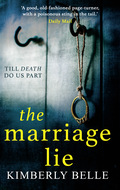Kitap dosya olarak indirilemez ancak uygulamamız üzerinden veya online olarak web sitemizden okunabilir.
Kitabı oku: «The Ambassador's Daughter», sayfa 5
I stop midstreet, drawing my flimsy shawl against the evening, which is pleasant but chilly enough to remind me that it is not summer yet. Normally I would have dreaded such an affair. But after weeks locked away in dreary Versailles, I somehow welcome the return to the city and its bustle, even with Tante Celia as my host. There is no room in Versailles for Celia, a woman without official status, so she has remained behind in Paris. Papa is lonely for her, I can tell, by his quieter than usual demeanor, the excuses he has found to stay over in the city after dinners.
Celia touches my elbow as we climb the stairs. “You’ve heard of Elsa Maxwell, n’est-ce pas?” She jumps indiscriminately between German and French.
“Of course.” I reply in German, not bothering to lower my voice. It’s not as if anybody will be fooled into believing we are someone else. Elsa Maxwell is ubiquitous. A reporter in the softest sense of the word, she is in fact a social doyenne whose real fame came from hosting soirees such as this. “She threw parties in London during the war.” I neglect to mention that I had not been to any of them.
Inside, the house is hot as August, too many bodies pressed close, trying to move in all directions. The party has been going on for hours, the festive atmosphere a train we had missed. A far cry from the stuffy receptions I had attended with Papa, there is no pretense of restraint. The men have loosened or in some cases removed their ties. The women have kicked off their shoes and those who have not bobbed their hair have let it loose from its pins. The women who had come to Paris were of an unusual sort—would-be writers and entertainers and journalists whose free-spirited nature surely gave consternation to the wives who had been left at home. Their dresses are the latest fashions, Oriental-themed shifts, Bohemian frocks without any pretense of a corset. I feel positively frumpy in my staid rose party dress, though not as much so as Celia, who with her high collar and crinolines stands out like a peacock, or a jester in an Elizabethan play.
Bodies fill the makeshift dance floor in the center of the great room, moving in strange new ways to the lively jazz music that blares from a gramophone. Two women dance as though one was a man, pressed close together. A strange scent, something strong like burning flowers, mixes with the faint odor of sweat in the air. There is a kind of desperation to the revelry, especially among the women. It is more than just the wiping away of cobwebs and sorrow of a world struggling to live again. The chance for a normal life with a husband and children has been denied to so many, a generation of would-be suitors gone to the trenches. The men who were left were the oddities, those who had escaped the military for some sort of infirmity, and those like Stefan who came back broken.
“All of this immorality,” Celia remarks in French, “Everyone’s roles confused, the lines between men and women gone, brought about by women going into work.”
“You really think that’s the cause of all of this?” My voice is incredulous. “There are so many other reasons. What about the desperation of the war, not to mention the influx of large numbers of soldiers now with too much time on their hands, so far from home?” Celia sniffs, unpersuaded.
“It’s a sight, isn’t it?” a woman next to me remarks idly. I nod, my eyes traveling toward the dance floor where the two women are locked together now, nearly kissing. There is something about being in Paris here, away from familial and societal expectations back home, that has given people license to act this way. “Austrians at the party, as if they were our friends,” she adds. I step back, stung. The woman had not been referring to the outlandish behavior at all, but was incensed by our kind being here, the enemy treated as equals.
“Come.” I follow Celia through the packed room. She disappears into the crowd ahead of me and, after searching above the sea of heads in vain, I give up trying to keep up and instead make my way to one of the open windows. The cold, crisp air is a welcome relief against my face, a reprieve from the swaths of perfumed smoke.
Outside a woman in a tattered work dress picks through the rubbish in the alley adjacent to the house. Though the homeless have become an increasingly common sight in Paris, I am taken aback by the woman, not much older than myself, searching the garbage for food. What does she think of us being here with all of our parties and revelry and noise? I imagine a husband taken at the front, hungry children back home. Sensing me, she looks up and her eyes widen with alarm, fearful that I will reproach or report her for being there. Desperately I reach into my purse and fling coins through the window, ashamed by the callousness of the gesture, as well as the inadequacy of my aid.
Celia is at my arm again, this time with our hostess, a buxom woman with short brown hair and a broad smile I recognize from the society pages of the newspaper. “Elsa, you remember …” I hold my breath, waiting for the woman to deny our having met in London.
But Elsa Maxwell, accustomed to traveling in wide circles and knowing people less often than she is known, sweeps me into a firm hug that has none of the airiness of the kisses so often exchanged here. “Darling!” Celia watches, eyes wide, apparently having bought the subterfuge. Elsa releases me. “If you’ll excuse me, I must get everyone started on the game.”
“Game?” But she has already moved on, leaving a burst of Chanel in her wake.
A moment later a bell rings and Elsa appears on the landing of the broad staircase in the middle of the foyer, commanding a presence well beyond what her rather plain appearance suggests. The din in the room instantly dulls, but there is still too much noise for me to hear well. She makes an announcement, holding up papers of some sort. A whisper of excitement blows through the crowd. Then she throws the papers into the air with a flourish and they scatter like confetti.
I turn to Tante Celia, confused. “A scavenger game,” she exclaims excitedly, scrambling to grab one of the sheets. “It’s a treasure hunt,” she explains, placing great importance on each syllable.
She scans the paper, then passes it to me. It is a shopping list of the oddest sort: a pair of opera glasses, a man’s swimming costume. Some of the items are phrased in riddle. “I don’t understand. How are we to buy these things if the shops are closed?”
She titters with superiority, staring toward the door. “We don’t buy them. We find them,” she replies, gaily as a child. Are we seriously to run around the streets hunting in the darkness?
“I don’t …” I start to beg off, following her outside. But Celia has already formed a foursome with two Swedes and together they set off toward the dense trees of the Bois de Boulogne.
As I start toward the massive park, my ankle twists, a sharp but fleeting pain. Celia turns back impatiently. The heel of my shoe, which caught the cobblestone, is cracked and, sensing my moment, I pull intentionally until the heel snaps. “It’s broken,” I lament, trying to fill my voice with disappointment. “You go on.”
Celia hesitates. “If you’re sure you’ll be fine.” Not waiting for my response, she follows the Swedes, who have already run off into the night, intent on the errand of finding a newspaper that is more than a month old. As she disappears into the trees, I sigh. I do not begrudge her excitement when she has so little to call her own. And she would not have left me if I was in real distress.
I limp back toward the house. The party has faded, the salon empty except for a rowdy group of men in the smoking room, a couple kissing shamelessly on one of the settees. I find the butler and ask him to call a taxi.
It is nearly midnight when the cab reaches Versailles. I pay the driver and step out, then peer across the road toward the Hôtel des Réservoirs, where lights still burn on the ground floor despite the late hour. Curious, I walk down the street. In a first-floor library, a man works intensely behind a desk, head low, bathed in yellow light. It is the German naval officer who picked up my scarf. I watch him, transfixed. He looks to be about thirty. He lifts his head and catches my eye, holding my glance for a second longer than he had earlier at the arrival. Then he stands and walks from the room. I step back into the shadows. How rude of me. He obviously minded the intrusion. But then the front door to the hotel opens and I see him silhouetted against the light.
“Can I help you, mademoiselle? We are not a zoo.”
I flush, seized with the urge to run. “No, of course not.” Then I take a step forward, out of the shadows. “It’s fraulein, actually.” I am quick to identify myself as a German out of the earshot of others, as if our kindred citizenship might excuse my watching him. I shift my weight awkwardly to my right foot. “I mean, Margot. Margot Rosenthal.”
“The professor’s daughter?” I nod. “I’m Georg Richwalder. I’m the military attaché to the delegation.”
“I’m sorry if I disturbed you. I broke my heel and was just pausing.” I hold up the shoe as evidence, take a step through the gate. He walks down the steps toward me. He is taller than I thought and I crane my neck upward to meet his eyes rather than stare at his chest as we speak.
“May I?”
I hand the shoe to him.
“I can fix this, I think.”
I eye him skeptically.
“You learn to be handy in a great many ways when you’re at sea. Would you like to come in for some tea while I try?”
I hesitate. The library behind him looks warm and inviting, the quiet and solitude a welcome contrast to the Maxwell party. But it wouldn’t be proper. “No, thank you. I’ll just be on my way.”
“Wait here,” he instructs firmly, a man who is used to giving orders. I shiver at his commanding tone. “I’ll bring the tools—and some tea—outside.”
I sit down on the step. A few minutes later he emerges with two cups of tea and a small kit. “I’m sorry to have disturbed you,” I say.
“Not at all.” He smiles and in that instant seems not at all the terrifying soldier I’d glimpsed during the delegation’s arrival. A chink in the armor. “After so much time on the train, the fresh air is refreshing. The trip was exceedingly long. We sat at one point for eighteen hours for some reason known only to the French.” He is wearing the same dark blue uniform as earlier today, but the jacket is unbuttoned, the shirt loosened at the collar.
I run my hand along the step, the stone hard and rough beneath my fingertips. “And the hotel … is it quite dreadful?”
“It’s not bad, really. I mean in its heyday I’m sure it was quite grand. But I spent the better part of the four years on a ship, so I may not be the best judge of comfort.”
“You were in the navy, weren’t you?”
“I was on the SMS König, the crown jewel of His Majesty’s High Seas Fleet.” The pride in his voice is reminiscent of the prewar days, taking me back to the parades down the Unter den Linden, young girls pressing sandwiches and sweets into the hands of newly minted soldiers as they made their way to the station. “Even as a senior officer, my quarters were no bigger than a closet. The hotel has reasonably clean linen and fresh water and I’m not awakened to the sound of gunfire each morning.” He smiles. “It’s paradise. And the library is wonderful. I shall enjoy working there at night after the rest of the delegation has retired. They’re mostly older, and we don’t have much in common. But it’s not a social occasion.”
“And your family—did they mind being left back home?” The question comes out more prying than I intended. “I mean only that I’ve heard some of the men lamenting that their families couldn’t enjoy Paris.”
“No.” An image pops into my mind of a Frau Richwalder, elegant and well coiffed, keeping the house running back in Germany. “That is, there’s no one. I’m not married. Not so much to enjoy here these days, anyway.”
“I suppose not.” The German delegation was almost entirely confined to the hotel except for sanctioned meetings and a lone excursion.
“There.” He hands me my shoe, neatly fixed.
“It’s good as new. Danke.” He watches me, as though lost in thought. Between my mud-streaked dress earlier and broken shoe now, he must think me a wreck.
“Aren’t you cold?”
I shake my head stubbornly.
“That’s hardly a suitable coat.”
“It’s the fashion.” I struggle to keep the sarcasm from my voice.
“Well, no one is here to see.” He takes his coat and puts it around my shoulders in a strange, too-familiar gesture.
A mixture of soap and wool wafts upward from the collar. “Now won’t you be cold?”
“I’m something of a polar bear actually. All of those nights on the North Sea.”
My eyes travel to the contour of his shoulder, dark against the lighted window. “Papa mentioned that there’s a trip to the battlefields scheduled for Sunday. Are you going?”
“Not if I can help it. I’ve spent the past four years on a battlefield of another sort. I’d like to see them, of course, and pay respects, but on my own, not from the window of a motor coach. I came here to work, not sightsee.”
“I suppose you won’t be going into Paris for the plenary session tomorrow, either?”
He shook his head. “We weren’t asked.” How odd, to be summoned all of this distance, only to be sequestered in a hotel, excluded from the very meetings for which you were invited. But then he forces a smile. “It’s no matter. So much better to have the time to work and not be shut up in stuffy proceedings all day.”
“True. What are you working on?” His eyes widen and I wonder if he minds the question.
“It’s quite dry,” he says apologetically. He is not offended, just surprised that I might take an interest. “I’m the delegation’s military officer and I’m studying plans and proposals as to what the treaty might look at, reading up on what the French and British experts are advocating in order to develop a counter position.” He continues, “There’s going to be a whole new world, a way for nations to coexist and to form strong alliances that will ensure we never face such destruction of man like that again.” His shoulders straighten. “I can be part of that, I think, by helping the navy to find its place. It’s slow going. Not the technical parts—I’m familiar with all of the engineering concepts from the ship. But languages were never my strong point and the delegation can’t spare a translator outside of the sessions.”
“I can help you,” I blurt out, without meaning to. “My French and English are quite good. I’ve got no technical training but with the aid of a dictionary I could muddle through.”
He looks at me dubiously. “It’s tremendously dull, lots of engineering reports.”
“I studied maths and science through the progymnasium level,” I reply. His jaw drops slightly, making his lips even more full. “I know it isn’t the typical curriculum for a girl,” I add, my words flowing more easily than usual. Back home girls are typically schooled in the gentle arts of music and literature at the high school level. But I had gravitated naturally toward the sciences and Papa had let my curiosity direct my studies.
“There’s nothing to be paid for it.”
“That’s fine.”
He coughs slightly. “Then why would you want to?”
“For the chance to do something—” I fumble for the right words, replaying my talks with Krysia “—meaningful. Real.” Because I’m sitting here in the middle of the world being formed, I add silently, playing at dinner parties and treasure hunts.
“Fine,” he acquiesces. For a moment I am annoyed—I’m trying to help him, but it sounds as if he is doing me a favor. “It’s quite late tonight but if you’d like to come by tomorrow evening at eight, we can work after the delegation retires. You’ll need clearance, of course, but that shouldn’t be hard to get with your father’s credentials.”
“So we’re agreed.”
“Ja. If …” he adds, “your father approves.”
I bristle and open my mouth to tell him that I am an adult and my own woman. But I can tell by his tone that it is not subject to debate, and that he will not cross another member of the delegation. “I’m sure it will be fine. I will see you tomorrow.” I stand and hand him his coat. “Thank you for the shoe, and the tea.” He stands. I wait for him to offer to escort me home, but he does not.
Back at the apartment, Papa is hunched over some papers in the study, reading so intensely he does not hear me come in. Smoke curls upward from his pipe, giving off a sickly smell. Seeing me, his brow furrows. “Is something amiss? I thought you were with Celia.”
“I was. I came home. Are you working?”
He shakes his head. “Just composing a cable to Uncle Walter.” I worry sometimes that Papa reports back to his brother-in-law too much, as if beholden to a superior. But Uncle Walter is just curious, a child being kept from the adults’ table, eager for every detail he is missing, as well as an assessment of how the Germans will fare. He has always imagined himself a political thinker. I suspect that in reality he is just an excellent prognosticator of what is to come, and he sorely needs details to do that.
“Papa,” I begin tentatively.
“Ja, liebchen?” He looks up and smiles. My father, an absentminded academic, can fairly be accused of spending the better part of life in a hazy bubble of his own thoughts. But he has always had a way of knowing when my tone was serious and required his actual focus and attention.
Which was not the effect I am going for here when I was hoping to pass this by him before he ever had the chance to focus on it. “I’ve been offered an opportunity to do some work.” He raises an eyebrow, and I continue. “Captain Richwalder from the delegation, you know him?”
“The young military officer. We met earlier.”
“He needs someone to help him with translations. Please, Papa, I’m just so terribly bored.” I don’t tell him that the work will need to happen in the evening or in the library of the hotel. “I just want to help.”
He rubs his chin. “I see no harm in it. It will be good for your linguistic skills.” He turns back to his papers.
Dismissed, I walk to my room. Across the road, the massive expanse of the palace grounds, trees and fountains are shrouded in darkness. I press my head against the window, craning my neck to glimpse the hotel. The light in the library still burns yellow on the first floor and I imagine Captain Richwalder hunched over his papers. I wonder what the work will be like. Will my language skills be sufficient? Remembering his imposing gaze, I shiver. Then, I turn off the light and climb into bed, anticipating with excitement and more than a little dread the day that is to come.
5
It is just shy of eight o’clock and the lamps glow behind the curtains at the hotel as I approach. I knock and a few seconds later the door opens. Captain Richwalder wears no jacket this evening, but his dress shirt is pressed crisply, the short hair above his ears still damp from washing. “Thank you for being prompt,” he says, sounding as though used to people being otherwise. I had, in fact, loitered a good twenty minutes at our apartment, not wanting to arrive too early, checking my reflection with more care than I otherwise would have to make sure I look capable. My clothes are simple, a starched cream blouse with a scalloped collar and a navy skirt a shade longer than is fashionable these days.
Taking in his stiff, formal demeanor, I am suddenly uneasy. What if he is difficult to work for, even unkind? Though I volunteered to do this and am not receiving pay, Papa will expect me to honor the commitment I’ve made and see the job through.
Captain Richwalder leads me through the lobby of the hotel, which is nicer than I might have expected from the drab exterior. The maroon curtains are just a bit faded and the chandelier overhead is every bit as elaborate as the one in our Paris hotel. He opens the door to the study. “Please make yourself at home. I’ll just be a moment.” As he closes the door behind him, I remove my coat. The library is modest in size, no bigger than our parlor down the street, but pleasant, with soft, overstuffed chairs and book-filled shelves that climb to the ceiling. The air carries the same damp, musty smell that permeates most of the town.
Captain Richwalder returns a moment later with two cups of tea and sets them down on the low table. “It’s a bit warmer now. The weather, I mean.” His attempt to make small talk is awkward, simple conversation strange on his tongue.
“Indeed.” I smooth my hair, which is pulled back in a loose, low knot. Then I decide to be direct. “So what is it that you need me to do?”
His face relaxes at being given permission to turn to work and he motions for me to follow him over to the desk in the corner, where he holds the chair out for me to sit. “There are a number of military matters related to the peace treaty that are to be proposed, and I’ve been asked to work on those, not surprisingly, that involve the navy. The Imperial Navy is one of the finest in the world,” he adds, unable to keep a note of pride from his voice. Or was, I cannot help but think. “And I believe there’s a real role for the navy as a peacekeeper in the new world order.”
His suggestion is the first I’ve heard of such an idea. “Do you think that’s what the Allies have in mind?”
“Surely some sort of partnership. Remember what Wilson said at the cease-fire, peace without blame.” It was true that in the desperate efforts to stop the fighting, Wilson had made such hasty promises. But the rhetoric since we’ve been in Paris has been far more pointed.
He continues. “So I believe such an arrangement is possible. But we’ve got to make the case.” He is animated now, gesturing broadly with his hands to illustrate his point. “There’s a vast amount of correspondence about the role that naval fleets might play, drawn up before and during the war. Synthesizing it will give a sense of what the Big Four are thinking and help to frame any proposal. But we have to work quickly.”
I nod. The other nations have been meeting for close to six months, inviting the German delegation only at the final hour. Captain Richwalder’s idea makes sense, but the window for providing any sort of input and making a difference is slim. “I would have started earlier, of course, but I was given access to the materials just days before leaving Berlin,” he adds.
“Of course.”
“I’ve prioritized the documents most in need of translation.” He spreads the papers out on the desk before me. I would have expected the hands of a soldier, thick and crude. But his fingers are long, more artist than warrior, delicate half-moons at the cuticle.
He retreats to one of the chairs by the low table, which is piled high with papers, and I turn to the first document. It is a report on the structure of the smaller vessel fleets, and though once or twice I consult the dictionary I brought with me, to be certain of the exact words, it is not altogether difficult. My translation settles into an easy rhythm. Working alongside Captain Richwalder is not so different than reading in the study with Papa. When I’ve finished the first page, I glance up, studying Captain Richwalder out of the corner of my eye. He is as imposing as he’d appeared at the arrival ceremony, with strong features seemingly etched from granite. But close up, there are little things I can see now—long eyelashes, almost impossibly so for a man, a bottom lip much fuller than the top. Faint, end-of-day stubble covers his cheeks.
He looks up unexpectedly. “Do you need something?”
“No.” Heat rises from my neck as I fumble to find an excuse for my staring. “I was just wondering, how are things in Berlin?”
“You’ve not been back?”
“Not since the start of the war. We were in England.”
“England?”
“Yes, Papa was on a teaching fellowship.” My own explanation sounds uneasy. At the time, our departure had been too rushed to ask. But afterward I had questioned it silently myself: Why had we gone to an enemy country right after the war broke out? Papa could have postponed the fellowship. But there had been an urgency to our leaving. Had he been worried for our safety? The war never reached German soil, and surely at Uncle Walter’s palatial mansion in the countryside we would have been fine. Had he been afraid of something else?
Captain Richwalder shakes his head. “Very bad, I’m afraid,” he says, returning to my original question. “The Social Democrats nominally hold power in Berlin, but the south, Bavaria especially, has become a hotbed of communist activity. There are rumors that the government may have to retake Munich by force to restore order.”
“That I’ve read in the press. But what is it like on the street?”
He pauses, struggling to fashion a description beyond the political. “Strikes, protests, rioting. Neighbors who lived in peace their whole lives taking sides and fighting one another. It’s anarchy. You will find the city much changed. Immigrants have poured in by the thousands from the east, living in these cramped apartments, entire families in a single room. And there’s no food, not for them and not for the people with money to buy it. The war is over, yet women and children continue to starve because of the blockade.” His tone is harsh.
“Oh!” I bring my hand to my mouth. I hadn’t understood it until then. Removed from the continent, safely tucked away in England, war seemed a remote thing, fought in the trenches by men who were strong enough to withstand it. Maybe that’s why Papa accepted the appointment in England. He must have sensed the horror of what was to come and wanted to spare me. While I was bemoaning the rainy British weather and lack of things to do, people back home were dying from hunger and cold. I shudder. “Your description of the chaos makes it sound like Russia.”
“Perhaps, but I don’t think it’s going to go that way. The SDP is so divided within that they can’t organize to get anything done, much less form an effective government. The right is taking advantage of that, capitalizing on all of the anger—they’ve managed to convince lots of people who weren’t there that the new government was responsible for our ultimate defeat in the war. It’s not true, of course, but people back home don’t know that and it makes for an attractive, simple story. So the right has some popular appeal but they don’t have the numbers. Things will settle somewhere in the middle. It’s terribly dissatisfying.”
“Maybe.” To me, there is a kind of comfort in the inertia, a safeguard against any one extreme taking too much.
He picks up one of the cups of tea from the low table and walks over. Our fingers brush as he hands it to me. “Forgive my bluntness. All of the time on the ship has made me forget how to speak to a lady properly.”
“Not at all. I much prefer plain speech.” I take a sip of tea, then set the cup down well away from the papers. “Captain Richwalder …”
“Georg,” he interjects. “If you don’t mind.”
“Georg,” I say, the name unfamiliar and awkward on my tongue. “What will you do after the conference?”
He retreats to his chair, stretches his legs out before him. “Return to the battleship, I suppose, or a different craft if that was needed.”
“You haven’t seen enough of war?”
“There is no peace without war,” Georg says. “There’s a concept in Asia called yin-yang, two opposite halves of the whole. War and peace are just that. And soldiers are needed. Without the military, there would be no order.”
I want to protest that man’s nature would allow him to coexist peacefully, but I know that he is right. “I mean, what would you do if you couldn’t go back to a battleship?” I ask, shifting topics slightly.
Georg cocks his head, as though he had not before contemplated the question. He had always assumed that there would be a navy and a place for him in it.
“Would you join the new government?”
He shakes his head. “I’ve got no patience for bureaucracy, and the capital makes me feel as though the walls and buildings are closing in around me. No, I’d probably return to Hamburg and oversee the family shipping business. If I can’t be on the sea, at least I could be near it.”
“Your family ships goods?”
“No, we build ships.” I had not realized until now that Georg is wealthy. I’ve always been oblivious to matters of money and class—too oblivious, Tante Celia remarked once. But with his uniform and haircut, it would have been impossible to tell. “There isn’t much of a ‘we’ anymore, unfortunately. My parents both died some time ago, and my brother Peter was killed at the Battle of Jutland.”
“How terrible.”
“He was on a ship not far from mine that was torpedoed. I saw him go down and I could do nothing to stop it.” His recounting is factual and precise, but his eyes cloud over at the memory. “Eight ships and nine thousand men at that battle alone. We joined the navy together, but it was really more his dream to be a great naval officer. I just went along.”
Now Georg had picked up the mantle, fulfilling the career his brother could never have. “Tell me more about Hamburg,” I say, trying to gently steer the subject away from war. The sadness on his normally strong face is somehow unbearable.
But he will not be dissuaded. “I think Peter wanted to escape to the sea. You see, our parents were terribly strict and they had such high expectations.”
“Yes, of course.” I nod.
“I have a sister, too. My parents had plans for her to marry someone rich and fairly dreadful, so she ran away to Austria. She lives in a cottage in the Obersalzberg with her husband, someone she actually wanted, cared for, and they have about a dozen children. I see her occasionally, send money. They have a modest lifestyle but it’s very happy.”
Ücretsiz ön izlemeyi tamamladınız.








